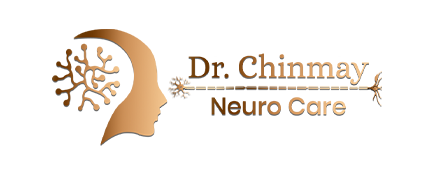Introduction
Our brain and nervous system are complex, and any disruption in their functioning can lead to neurological disorders. Neurological diseases affect millions of people globally, and understanding them can help in prevention, early detection, and treatment. Early intervention is often crucial in managing these disorders, which is why staying alert and educated on common neurological issues can make all the difference. In this blog, we’ll explore how learning about these conditions can empower you to stay proactive in maintaining brain health, with insights from Dr. Chinmay, a leading neurologist at Dr. Chinmay’s Neuro Care Clinic in Balewadi-Baner, Pune.
Understanding Neurological Disorders
Neurological disorders encompass a wide range of diseases that affect the brain, spinal cord, and nerves. These disorders can be inherited, result from injury, or develop due to lifestyle factors. The most common neurological conditions include:
- Stroke – A medical emergency caused by a blockage or rupture of blood vessels in the brain. Strokes can cause sudden numbness, confusion, difficulty in speech, and even paralysis.
- Alzheimer’s Disease – A degenerative condition characterized by progressive memory loss, confusion, and cognitive decline.
- Parkinson’s Disease – A chronic movement disorder that leads to tremors, rigidity, and difficulty with coordination and balance.
- Epilepsy – A disorder that causes recurring seizures due to abnormal electrical activity in the brain.
- Multiple Sclerosis – A condition where the immune system attacks the protective sheath that covers nerve fibers, leading to communication problems between the brain and the rest of the body.
- Headaches and Migraines – While not always classified as neurological disorders, chronic headaches and migraines can significantly impact daily life.
Knowing about these conditions and recognizing the symptoms early can help you make informed decisions regarding your health.
Early Detection and Prevention
Many neurological disorders, such as Alzheimer’s or Parkinson’s, often have subtle symptoms in the early stages. Recognizing these symptoms early can allow individuals to seek medical attention before the disease progresses. Dr. Chinmay, one of the best neurologists in Pune, emphasizes the importance of early diagnosis and intervention. By staying informed about the common signs and symptoms, you can increase your chances of preventing the disorder from progressing or at least slow down its impact.
For instance, stroke symptoms include sudden numbness on one side of the body, confusion, difficulty speaking, or loss of coordination. Identifying these symptoms and seeking immediate help can drastically reduce the severity of a stroke and improve recovery chances.
The Role of a Neurologist in Diagnosis
Neurologists play a pivotal role in diagnosing neurological disorders. Dr. Chinmay, a highly reputed neuro consultant in Pune, recommends regular consultations if you notice any symptoms or if you have a family history of neurological conditions. Neurological evaluations, including brain scans, nerve conduction tests, and other diagnostic tools, help in pinpointing the exact nature of the problem and formulating the right treatment plan.
Visiting a trusted clinic, like Dr. Chinmay’s Neuro Care Clinic, ensures that you have access to state-of-the-art technology and expert care. Whether you are dealing with chronic headaches, unexplained dizziness, or memory issues, Dr. Chinmay’s team can provide a comprehensive assessment and personalized treatment approach.
Lifestyle Changes for Brain Health
While genetics can contribute to neurological diseases, lifestyle choices play a significant role in brain health. To prevent neurological disorders or slow their progression, consider incorporating the following habits into your routine:
- Balanced Diet: Eating foods rich in antioxidants, omega-3 fatty acids, and vitamins can protect your brain from damage.
- Regular Exercise: Physical activity improves blood flow to the brain, reduces stress, and supports overall cognitive function.
- Mental Stimulation: Engage in activities that challenge your brain, such as reading, puzzles, or learning new skills.
- Stress Management: Chronic stress can have detrimental effects on the brain. Practices like yoga, meditation, and mindfulness can help alleviate stress.
- Adequate Sleep: Sleep plays a crucial role in brain function and the consolidation of memories. Make sure you get enough rest every night to support optimal cognitive health.
Why You Should Visit Dr. Chinmay’s Neuro Care Clinic
Dr. Chinmay’s Neuro Care Clinic in Balewadi Pune, is committed to offering the highest standard of neurological care. As one of the best neurologists in Pune, Dr. Chinmay combines expertise in clinical diagnosis with cutting-edge technology to offer comprehensive treatment plans for a variety of neurological disorders.
Whether you’re experiencing occasional headaches or suspecting a serious condition like Parkinson’s disease, Dr. Chinmay’s personalized treatment approach can help you find the relief you need. His clinic’s holistic care model ensures that patients receive not just medication but also the necessary lifestyle and dietary counseling to improve their overall well-being.
Summary
Knowing about neurological disorders and understanding their symptoms is key to staying proactive about your brain health. Early detection and intervention can make a significant difference in the quality of life and treatment outcomes. Dr. Chinmay’s Neuro Care Clinic in Balewadi Pune, provides expert care and personalized treatment plans for various neurological conditions. Best Neurologist In Pune Staying educated on these disorders, maintaining a healthy lifestyle, and seeking expert advice from a trusted neurologist like Dr. Chinmay can help you stay alert and ensure long-term brain health.


